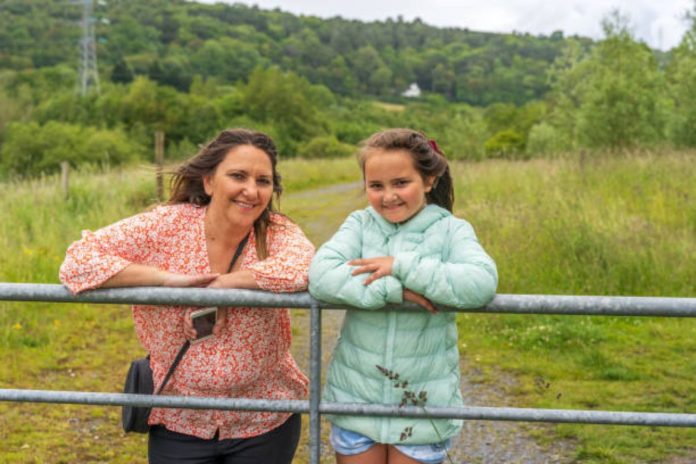If you’re thinking of how to foster a child in Wales, you need to know about the fostering process, the requirements, and the support. Here’s a guide to help you get started as a foster carer in Wales. For more information, visit St David’s Fostering.
What is Fostering?
Unlike adoption, where legal parental responsibility is transferred to the adoptive parents, fostering is where you care for a child on behalf of the local authority or an independent fostering provider. Fostering provides the best possible care to help a child flourish whilst supporting them emotionally and physically.
Step 1: Fostering in Wales
The Welsh Government regulates fostering services to ensure children and young people receive good care.
To foster a child in Wales, you must meet certain criteria. This includes being over 21, having a spare room in your home, and going through an assessment process. You don’t need to have children of your own, as fostering is about providing the right support and environment for a child in need.
Step 2: Contact Fostering Services
Most services have an initial enquiry form online. Once you’ve made initial contact, the fostering team will arrange to talk with you in more detail and explain the requirements and the fostering process.
Step 3: Preparing for the Assessment
If you decide to go ahead, you’ll start the assessment process, which involves interviews, background checks, and a visit to your home. The Disclosure and Barring Service (DBS) check is part of this.
Throughout the assessment process, a supervising social worker will be allocated to work with you, to support and guide you. This social worker will talk to you about your background, family dynamics, skills, and why you want to foster. They’ll also assess your foster home.
Step 4: Training and Support
Most local authority fostering services and independent fostering providers offer initial training; this training gives new foster parents the skills and knowledge to provide the best possible care to foster children.
Fostering services also offer support services and ongoing training to help foster carers deal with the needs of foster children and any challenges they may face.
Step 5: Approval by the Fostering Panel
Once the assessment is complete, your application will go to the fostering panel, a group of professionals who will review all aspects of your application. If approved, you will become an approved foster carer and be ready to welcome your first foster child.
Step 6: Matching with a Foster Child
Once approved, your local authority or independent fostering provider will work to match you with a foster child whose needs match your skills, experience, and home environment. This process is designed to ensure both the child and foster family can thrive together, with a focus on stability, well-being, and compatibility.
Supporting a Foster Child
You may work with social workers and other professionals to support the child’s well-being, educational needs, and personal development. Building trust with the child is key, as many foster children have experienced trauma or instability.
Ongoing Support and Resources for Foster Carers
Fostering isn’t easy, but you’re not alone. Fostering services in Wales offer foster carers extensive support, including financial support, training, and access to support services.
Financial Support
Foster carers receive a weekly allowance to cover the costs of caring for a child. This allowance helps with the day-to-day expenses of providing a home, meals, and activities for the child.
Additional Support Services
Alongside financial support, local authority fostering services and independent fostering providers offer access to support services, including respite care, support groups, and access to a fostering community for advice and shared experiences.
Supervising Social Workers
Your supervising social worker will be a big part of your journey as a foster carer. They’ll visit regularly to offer guidance, monitor the child’s progress, and ensure your family’s needs are met.
Support from the Fostering Community
Many local communities and organisations offer support networks and groups where foster families can connect, share experiences, and support each other.
Benefits of Fostering in Wales
By fostering, you’ll be giving a young person a stable, loving home environment, which may be their first positive, secure experience of family life. Fostering can also bring huge personal rewards, the knowledge that you’re supporting a child or young person at a critical time in their life.
Further to Consider for Prospective Foster Carers
- Age and Health: Some local authorities and fostering services may have age-related considerations or health assessments to ensure you’re physically able to care for a child.
- Family Dynamics: Fostering affects the whole family, including spare room availability and time commitments, so it’s important to discuss the decision with all family members.
- Commitment to Training and Development: The needs of foster children can be very different, and ongoing training is key to providing the best possible care and support for their development.
- Contact with Birth Parents: Part of fostering may involve working with the birth parents and facilitating contact when needed, as maintaining family connections can be good for the child.
How to Apply
If you’re interested in fostering in Wales, the first step is to get in touch with your local authority or an independent fostering agency in your area. They will be able to give you more information and help you understand the specific requirements in your local area. You can find more information from the Welsh Government or visit local authority fostering services websites to start the application process.
Fostering in Wales
Fostering in Wales is a big ask, but with the support available, it’s an option for many ordinary people who want to make a difference to children and young people.








